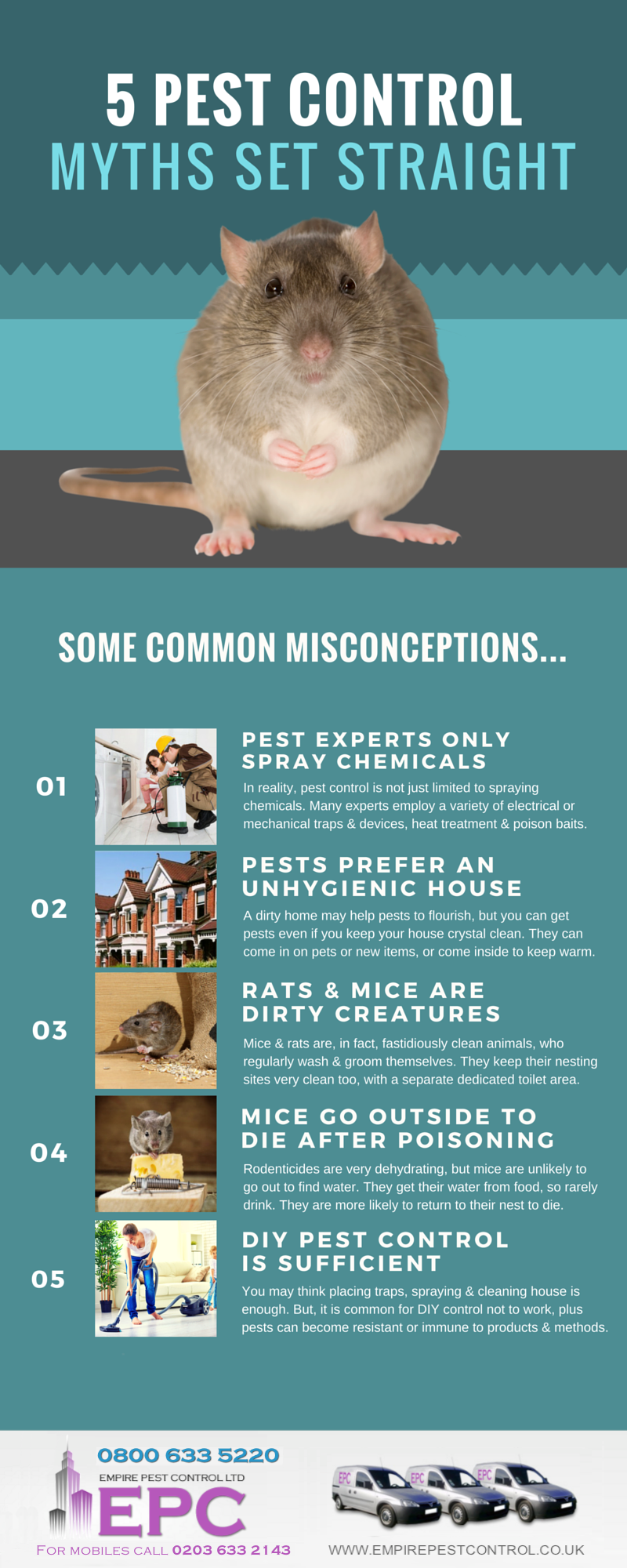The Duty Of Parasite Control In Food Safety And Hygiene
The Duty Of Parasite Control In Food Safety And Hygiene
Blog Article
Author-Tonnesen Thorsen
Are you knowledgeable about the hidden dangers that insects present to the safety and health of your food? From rodents to bugs, these undesirable site visitors can contaminate your components, surfaces, and storage areas.
This short article explores the essential role of insect control in preserving the highest possible standards of food security and health. Discover Preventative measures for rodent control and prevention steps that will assist you secure your service, customers, and credibility.
Do not allow insects endanger the high quality of your food.
The Effect of Bugs on Food Safety and Hygiene
In your cooking area, bugs can have a substantial influence on food safety and hygiene. These undesirable visitors, such as rodents, insects, and roaches, can pollute your food, surface areas, and utensils with dangerous bacteria, infections, and parasites. They can conveniently access your pantry, closets, and even your fridge, leaving droppings, urine, and hair.
Not just can they ruin your food by chewing through packaging, however they can likewise spread conditions like Salmonella, E.coli, and Listeria. Think of preparing a dish for your family, not aware that the ingredients you're making use of are already polluted.
It's important to take immediate activity to stop and manage parasites in your kitchen area. Normal cleaning, appropriate food storage space, and professional pest control steps are vital to ensure food security and maintain a sanitary setting in your kitchen.
Efficient Insect Control Approaches for the Food Market
Executing reliable insect control strategies is vital for keeping food security and hygiene in the food market. By applying these strategies, you can prevent pests from contaminating the food and make sure that your items are safe for consumption.
One efficient method is to frequently examine and monitor your facility for indications of parasite activity. This includes checking for droppings, nests, or any damage caused by parasites.
It's also essential to seal all entry indicate avoid bugs from getting in the center. Routine cleaning and cleanliness are necessary, as bugs are brought in to food deposit and spills.
In addition, appropriate waste management is critical to prevent the build-up of food waste that can bring in bugs.
Preserving Health Standards Via Insect Avoidance Procedures
To maintain health requirements, you should frequently execute bug avoidance procedures. By taking https://www.nature.com/articles/news.2010.505 to prevent bugs from entering your food facility, you can make sure the safety and security and tidiness of your properties. Right here are some reliable parasite prevention steps to take into consideration:
- Seal all splits and gaps: Pests can go into with also the tiniest openings. Frequently check and secure any type of spaces in doors, home windows, wall surfaces, and floors to maintain insects out.
- Correct waste management: Deal with food waste without delay and safely in secured containers. This will reduce the destination of parasites and protect against invasions.
- Normal cleansing and sanitizing: Keeping sanitation in your facility is vital. Regularly tidy and sterilize all locations, paying unique focus to locations where pests might conceal or reproduce.
- Apply a monitoring system: Regularly inspect your premises for indicators of parasite activity. Install parasite surveillance tools, such as traps or sensing units, to determine and attend to any kind of potential issues beforehand.
Final thought
So keep in mind, when it involves food security and hygiene, bug control plays a vital function.
By carrying out reliable pest control methods and safety nets, we can make sure the highest criteria of sanitation and safety and security in the food sector.
Do not allow pests endanger the high quality of our food; allow's stand together and secure our wellness and health.
